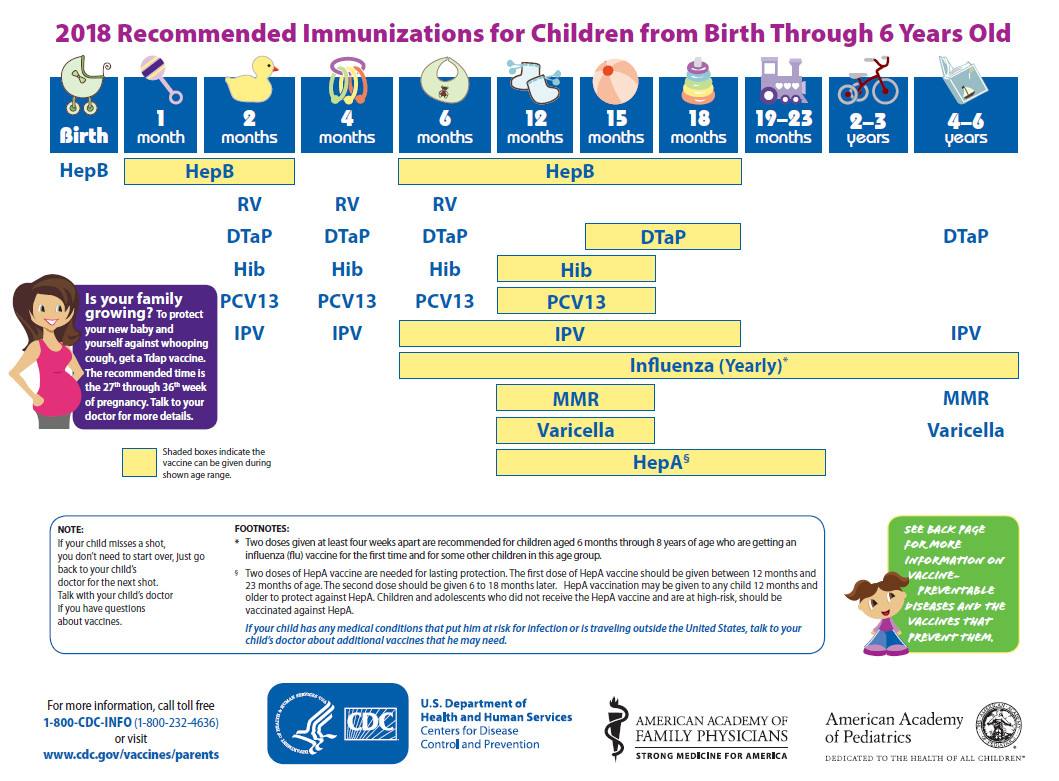-
Update your child’s immunizations

Updated immunization schedules were released on Tuesday, by the Centers for Disease Control and Prevention (CDC).
“The biggest change this year is the recognition that all babies should get the first dose of the hepatitis B vaccine within 24 hours of life,” says Dr. Robert Jacobson, a Mayo Clinic pediatrician. “There’s no logic or science to support waiting a month or two — even for those babies thought to be at low risk for infection.”
The CDC document also says changes include:
- New or revised recommendations for poliovirus; influenza; and measles, mumps and rubella vaccines
- Clarification of the recommendations for rotavirus and pneumococcal vaccines
The Advisory Committee on Immunization Practices approved the new immunization schedule that also has been approved by the American Academy of Pediatrics, the American Academy of Family Physicians, and the American College of Obstetricians and Gynecologists.
“This updated schedule represents a masterpiece of scientific thinking and human engagement,” says Dr. Jacobson. “This is not just the CDC’s schedule. This is a
schedule shared by, and agreed upon by, the American Academies of Pediatrics and Family Physicians, and the American College of Obstetricians and Gynecologists. This schedule represents the best balance of timing the vaccines when they work against when the vaccines are needed.”
Dr. Jacobson emphasizes that delaying vaccination leaves children at risk for diseases and the complications they cause. He adds, “Alternative schedules haven’t been studied in terms of their effectiveness or safety. What we do know about alternative schedules is that they leave our children at risk for vaccine-preventable diseases and confuse parents as to what they should do.” Read more:
Read more:
- Immunization schedule for infants and children (birth - 6 years)
- Immunization schedule for preteens and teens (7 - 18 years)
- Advisory Committee on Immunization Practices Recommended Immunization
- Recommended immunization schedule for children and adolescents aged 18 years or younger
Related Articles







